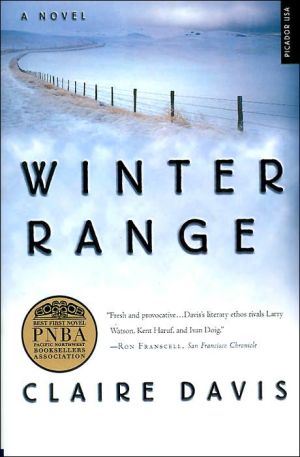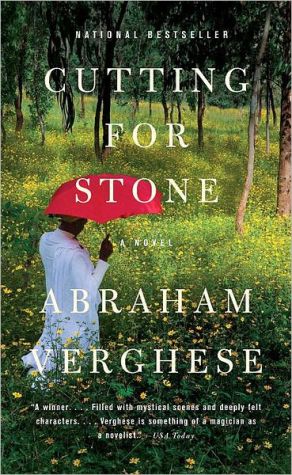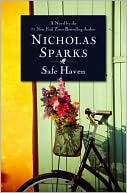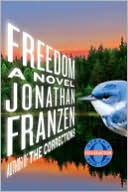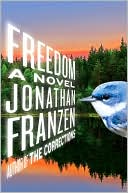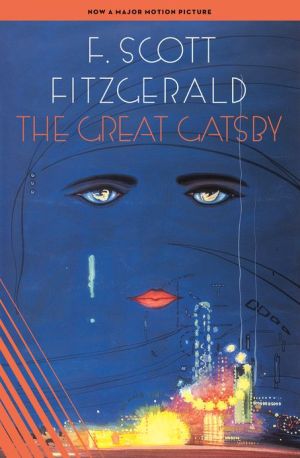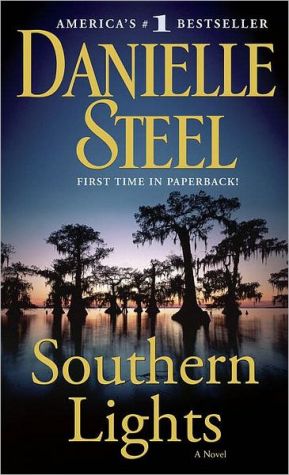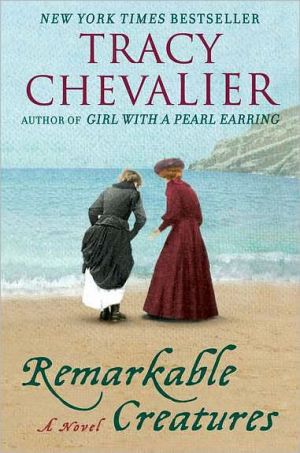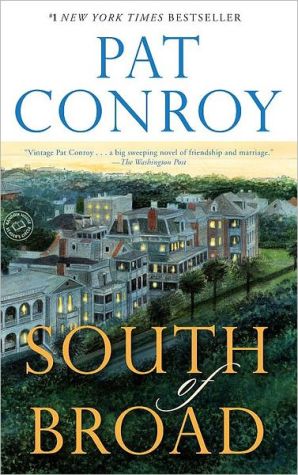Winter Range
Winner of the Pacific Northwest Booksellers Award for Best First Novel and the Mountains and Plains Booksellers Award for Best Novel\ In Winter Range, the intimate details of ranching and small-town life are woven into the suspenseful story of three people struggling to survive, to belong, and to love in the chillingly bleak landscape of eastern Montana. Ike Parsons is a small-town sheriff whose life is stable and content; his wife Pattiann is a rancher’s daughter with a secret past. But when...
Search in google:
Winner of the Pacific Northwest Booksellers Award for Best First Novel and the Mountains and Plains Booksellers Award for Best NovelIn Winter Range, the intimate details of ranching and small-town life are woven into the suspenseful story of three people struggling to survive, to belong, and to love in the chillingly bleak landscape of eastern Montana. Ike Parsons is a small-town sheriff whose life is stable and content; his wife Pattiann is a rancher’s daughter with a secret past. But when Ike tries to help a hard-luck cattleman named Chas Stubblefield, he triggers Chas’s resentment and finds his home and his wife targeted by a plot for revenge.San Diego Union-TribuneNeither romanticizing the West's rugged demands nor vilifying them, Davis has pictured the region and its peoples with such incredible vividness that her images speak for themselves...
Chapter One\ The sheriff, Ike Parsons, stood at the curb, zipped his coat closed to his throat, and knocked the snow clear of his hat. A truck rolled past, hit a glazed patch in the street, and did a little sideways slide and jiggle. The driver ducked his head to the sheriff as if apologizing, and then the truck straightened and moved on. It was a year of big snow for this small town, in the corner of Montana, eastern edge of what was known as the hi-line to the locals-a corridor of high desert, along old Highway Two, bisecting the northern tier of the state. Just a jump from Canada to the north and the Bearpaw Range, the Little Rockies to the distant south. Dry land farm and ranch country-wheat, cattle. Parsons tucked his hat over his ears, tugging the brim to a beak above his nose. The snow fell haphazard out of the bright blue overhead, papered alike the streets and hydrants, hats and shoulders of his fellow townsfolk. Across the street, the vet Purvis was angling his way over a snowbank, cutting a diagonal toward Ike. He was a tall man in his early sixties, graying, but like many out here, ropy-muscled and fit from dealing with livestock. He hopped the curb and a foot dipped under him so that he bobbled a moment and the sheriff snatched him under an arm and steadied the older man. "I meant to do that," Purvis said.\ Parsons shrugged. "And I meant to let you fall on your ass."\ The two men grinned. Purvis looked up, dodged a clump of falling snow, said, "Ain't this a sight? Once in a generation."\ Come spring the land would be rich with water, and with any luck it would signal the end of seven years of drought, but now, late winter, it was snow, burying the streets. Just outside of town-a flat-open slab of white over hardpan and scrub, a scattering of sage and cactus and greasewood punching through, a skiff of tumbleweeds dashing over the icy surface, swooping about in the wind.\ "You off to work?" Purvis asked.\ Ike stepped away. "My day off."\ Purvis fell in alongside. "You get those? What the hell's the law coming to?"\ Ike shook his head and a clot of snow flopped down from the brim. "World's gone to the dogs, I guess." Parsons glanced in a storefront window, sucked his stomach in. At forty-two he was still a solid man, but softening at the edges and he did not take kindly to it. Too many sedentary hours behind the desk, too many miles on the roads.\ "So, your day off-what you got lined up?"\ "Hardware store." Ike shoved his hat back, tugged at his hair. "Steve's for a trim. Get lunch. Find my wife." Ike tipped a finger to his hat as Lucy Mattick ducked past. Some few people lived in town, but most, like Lucy, drove in once a month, or twice, and their families had done so for two-three generations, so that everyone knew each other as well as the vehicles they drove in. A far cry from his former life as a police officer in Milwaukee, Wisconsin, where, with any luck, he was able to keep all the faces anonymous, and where, on his old beat-downtown to the near north side, the projects rambling down Cherry and Vine, the entrenched North Avenue-there were more steel bars over doors and windows than in a jail.\ Lucy walked with her shoulders braced forward as if against a headwind. Her son Joe scuffed behind at about ten feet-a sullen teenager who'd already been into enough trouble to look the other way as he passed the sheriff.\ The vet doffed his hat, said, "Morning, Lucy." And after she'd passed, he leaned into Ike's hearing. "One damned fine-looking woman, that Lucy Mattick. But nervous."\ "Purvis, don't you have some sick animal to go look after?"\ The older man shook his head. "Think I'll take the day off," he said, "think I'll just keep you company till you find Pattiann. See if I can't talk her out of a home-cooked meal later." He grinned at Ike. "She likes me, you know."\ They crossed the street at the courthouse, turned right toward the mercantile. A good-sized town, by western standards, seven parallel blocks east-west, four north-south around a central square. Building fronts were brick and wood, two-storied with western faces, free-swinging shingles, and hand-lettered signboards: post office, grocer, mercantile.\ The bell over the hardware door saluted their entry. Ike found his way between tall shelves of pipe joints and plungers, nuts, bolts, and chain, samples of barb and insulators. The fir floor dipped in the center of the aisles where a hundred years of boots had worn a groove. He found a new float for the toilet, a spare ball and chain just in case. And damn but he hated this business of home repair, hoped he had the right parts, already dreading his awkwardness in the confines of the tank, at odds with balls and washers, how easily undone he was by overflows. At the counter he paid for the parts. Purvis lifted a cigar from the display case and tipped it toward the cash drawer. "On my bill," he said. The young clerk smiled and nodded.\ Back in the street, Ike squinted against the white light of sun on snow, the spangling of chrome and windshield. He took a deep breath, caught himself hoping for a glimpse of his wife Pattiann, her red hair as bright and buoyant as the air itself.\ At the end of Main Street and Third, Purvis lit his cigar, took a great puff, and hummed as he released the smoke. They stopped to read the signboard on the Unitarian church: Here today . . . In the sky behind the Unitarian's stunted steeple, Ike could see the grain elevators where birds convened and squabbled. No songbirds for this place, nothing fancy, just starlings-black on black so deep the sun couldn't shine bright enough to light their feathers.\ Across from the courthouse was Steve's barber shop. Purvis stepped in ahead of Ike. Five men were spread out among the row of seats against the wall and the sofa backed to the front window. Ike's father-in-law Bill was seated on the sofa, neck clean-shaven, his dark hair clipped close and scalp pinked as a shorn sheep. Pattiann sat kitty-corner to him, her booted feet raised and resting on the low table that magazines were rifled across. When Ike entered she smiled, lifted her face to him.\ "Jig's up, Pattiann," Purvis said, walked over and gave her a smacking kiss on the lips. "Sheriff's here."\ "Oh good," she said. "You got the handcuffs, honey?" She smiled at Ike, a toothsome grin.\ Her father was extending his hand to Ike, and a deep flush moved up his neck and over his face. He looked over at his daughter. "I don't know that a father needs to hear this," he said.\ Pattiann snorted. "Really? And what about those dress spurs hanging on your bedroom wall?"\ "Those, Missy, were your grandfather's," Bill said, his color rising.\ Rob, Pattiann's brother, seated in one of the three barber chairs, fended Steve off with a hand and sat forward. "Believe he's right, Sis. The spurs were Grandpa's. But the lasso next to them is Dad's."\ Purvis knocked the ash from his cigar into a sink. "Used to be I knew a few lariat tricks myself."\ Steve leaned over, flushed the sink clear with cold water. "You know an ashtray when you see one?" he asked. Steve was a long-shanked man with a ripe, pear-shaped belly. A birdly man who had a peckish way of combing and cutting, his elbows winging over the heads of bibbed customers. "You here for a cut Sheriff, or to shoot the bull like this other bunch?" he asked, his scissors stabbing the air toward Aaron Wolfgram, Wes Long, and John Fonslow.\ Wes clucked his tongue, said, "Well, now I am hurt. You hurt?" He turned toward Aaron, then, "You, John?"\ Both men nodded.\ Ike slung his hat up on the coatrack.\ Steve eyed Ike's hair. He nodded, satisfied. "A trim," he said, pointed to an empty barber chair, wagged his finger in Rob's direction. "And you could take a lesson. Sheriff here may be the only man in town hasn't come in asking me to salvage his head after some botched-up, ham-handed home haircut."\ "That's 'cause the only way Pattiann's likely to cut anything is with a livestock clipper," Rob said.\ "Well," she said, "I like to go with what works. Why, the other day, when I was doing my legs . . ."\ Ike eased into the chair, enjoying the men's laughter, the pride in his father-in-law's eyes as he cocked his head to a side and winked at his daughter. There was no getting ahead of Pattiann for long. She could keep the best of them treading water. Steve flapped a bib over Ike, and the cloth billowed down slow as a sheet over a bed. Ike leaned back, the sunshine warm, reflecting brightly off the pin-striped cloth. Steve bustled back to Rob and Ike let the men's chatter fall about him. Let himself enjoy this moment in the company of his good friend Purvis, the friendly town men, Pattiann and her family. He let his gaze drift to where Pattiann lounged, a booted foot crossed over the other, wagging a slow three-beat rhythm, waltz time. Her head tipped back and her red hair, kindled in the wide swath of midmorning sunlight, lit the ocher wall behind her. And on the wall over her head was the gallery of old photographs that Ike loved next best about this place, next best to the friends and jokes and tall tales. The row of photos, framed with handwritten notes Scotch-taped below and alongside-the who and where and when of each. Pictures of the town's boom era, 1910 through 1917, when in that narrow window the high desert was blessed with years of water and the dry lands became great waving prairies of grass: blue grama, needle and thread, redleaf sedge, bluestem, buffalo, plains muhley and barley. A savannah of green under a breakneck blue sky. And there were the rush of homesteaders, Midwesterners mostly-farmers, merchants, newlyweds, and mavericks, greenhorns all, clutching full-color brochures, and ready to cash in on their own free three hundred and twenty-acre parcel of land. A little bit of paradise. A homestead of their own.\ And then the rains ended, this little bit of paradise, after all, being part of the Great American Desert.\ Damn but they were a scrappy bunch, their wagons and trucks strapped high with furniture like a presage of the Great Depression caravans. Young men trailing mismatched teams, a hobnob collection of this and that they'd mustered up, or brought along. Ill-prepared, ill-informed, downright lied to by the railroads trying to people this great wasteland. A photo of the train depot-a clutch of men and women in fine but rumpled clothing, an unlikely crop of parasols blooming overhead. Ike's favorite picture was the front of the old boardinghouse, a line of men in cocked bowlers, waistcoats, and bow ties, arms over each other's shoulders grinning into the camera, ignoring the sweat, the heat of the day. And others. Women with bibbed and knickered children in front of tar paper shacks. Or women in long dresses, in the field, great shocks of wheat bundled under their arms. And what Ike thinks most telling, perhaps, is their gaze, not the brash head-on stare of the men, but a distant kind of seeing, their focus directed somewhere clear of the camera's lens, some other place on the far horizon. Some other time. And truth was, most all of the locals were descendants of that raw-boned, greenhorn stock, savvy with the accumulated breaks and mistakes of three and four generations. It was true of Bill and Rob. Pattiann was a third-generation Montanan-a rancher's daughter raised to be a rancher's wife who had instead married a Midwest boy turned sheriff. Sometimes he marveled that she chose him. But what choice had he given her, really, appearing out of nowhere with his hat in hand, Pattiann, will you marry me? Like some orphaned calf. How that must have appealed.\ He shut his eyes, drifting in the warm sun, the bantering, the soft chatter. He and Pattiann had been married three years now, had known each other for two years before that. He met her in a night class in criminology at the university back home in Wisconsin, the one and only semester Ike had ever agreed to act as a visiting instructor. She sat in the back of the classroom, by the door, on the edge of her seat as though she might bolt.\ The first time they made love was in his single bed in an efficiency apartment. He'd turned on a portable cassette player to cover the neighbor's TV. She took off her blouse, and he said, "I'm a lot older than you." She slipped the bra straps from her shoulder, and he said, "I don't think cops should marry." When she shrugged out of her jeans and panties, he shut up. Afterward he said, "We probably shouldn't be doing this." She offered her bed the next night.\ She earned a C in his class. She might have done better, but she never got assignments in on time. Six months later, she had left to go back home. Montana. A place, at that time, he could hardly conceive of. A place she'd talk about only reluctantly. A year later, he'd followed.\ He heard the chair next to him tip forward with a squeak, and opened his eyes to see Rob stand up, then duck his head to glance in the mirror as Steve whisked his shoulders with a small hand broom.\ He caught the tail end of a conversation between Wes and Aaron. The words "stubble," and "field," and then, "Well, if I ever turn that stupid, shoot me, put me out of my misery." This from Aaron, who ran a tidy ranch, great-great-grandson of one of those early homesteaders. Then silence. Pattiann was staring down at her lap, her hands capping her knees, and her father Bill was turned sideways on the sofa, looking over his shoulder and out the front window. He seemed distracted or uneasy. Purvis came out of the washroom, wiping his hands on a paper towel that he tossed into a basket under the sink. The stub of his cigar was clamped between his lips and he knocked a full inch of ash into the porcelain sink. He scooted over to Pattiann, out of the range of Steve rinsing the bowl once again, with a great splashing gesture.\ "You must be wondering what I'm doing here," Purvis said to her.\ She patted his hand, her lips twitching to a side. "My guess is you need a haircut or a home-cooked dinner."\ "You know," he said, dousing his cigar in the clean ashtray, "if just one other woman knew my heart half as well as you-"\ "You mean stomach."\ "Whatever." He waved his hand in front of her. "I'd snatch her up."\ Rob grabbed his coat off the rack, threaded his arms into the sleeves. "Knew this guy-Phil Zweifel was his name-trail cooked for us one season. Best chow I ever ate."
\ From the Publisher“Fresh and provocative...Davis’s literary ethos rivals Larry Watson, Kent Haruf and Ivan Doig.” —Ron Franscell, San Francisco Chronicle\ “Brilliant, beautifully written...Davis’s skill brings wintry Montana alive.” —Kirkus Reviews (starred)\ “Wonderful...her story races toward a gripping, ice-bound tragedy.” —Ron Charles, Christian Science Monitor\ “Impressive...Davis writes so well.” —Bob Minzesheimer, USA Today\ “A fine first novel....with lyrical precision, Davis describes a way of life in which actions are more eloquent than words.” —The New Yorker\ “Davis...vividly teaches her readers something new... fresh and unexpected every time.” —Susan Salter Reynolds, Los Angeles Times\ “Penetrating, and heart-wrenching detail... Davis has pictured the region and its peoples with such credible vividness that her images speak for themselves.” —San Diego Tribune\ “[A] wonderfully strange story...an unflinching portrait of a way of life indebted to nature.” —Louise Jarvis, The New York Times Book Review\ “This is a novel of social class and dreadful climate, Americans in desperate circumstances trying—and sometimes failing—to live peaceful lives.” —Carolyn See, Washington Post\ \ \ \ \ \ San Diego Union-TribuneNeither romanticizing the West's rugged demands nor vilifying them, Davis has pictured the region and its peoples with such incredible vividness that her images speak for themselves...\ \ \ Publishers WeeklyBoth breaking up and growing up are hard to do, learns Phoebe Fine, the protagonist of Rosenfeld's engaging, nostalgic and sometimes frustrating first novel. Each chapter is devoted to a man who has captured Phoebe's attention, affection and occasionally her heart, between the ages of 10 and 25, starting with "Robert Mancuso, or `The Stink Bomb King of Fifth Grade.'" Young Phoebe, the intellectually--if not socially--precocious daughter of two professional classical musicians, is sassy and sympathetic in the amusing early chapters. But once she enters college, romance shows its darker sides, and Phoebe's desire to be loved takes its toll on her self-esteem. She develops eating disorders and suffers lapses of judgment in her amorous encounters; she has an affair with a married professor, and succumbs emotionally to a number of cads. "At the age of 20," Rosenfeld writes, "men had become the centerpiece of her life." After graduation, Phoebe moves to New York and dabbles in promiscuity to prove the power of her beauty, only to learn that "being beautiful wasn't nearly enough." Her search for self, fulfillment and true love goes on, though she's far too cynical to find anything but moments of clarity and fleeting bliss. Rosenfeld's style is direct and often witty, and the plot device is intriguing. The reader gets to know Phoebe as she interacts with her love interests; as she tests her mettle, she learns who she is, even if she doesn't quite like who she's become. But it's exasperating to watch Phoebe the wise, funny girl grows into Phoebe the insecure woman who mistrusts her own heart. First serial to the New Yorker. (Sept.) WINTER RANGE Claire Davis. Picador USA, $23 (272p) ISBN 0-312-26140-3 ~ The New West is the setting for an old-fashioned power struggle in Davis's entrancing debut. Sheriff Ike Parsons, 42 and married to fiery redhead Pattiann, patiently patrols a small Montana town whose cattle outnumber its residents. Pattiann, who always loved the ranching life, was reluctant to settle into her role as a townie's wife, and is bitter over her father's decision to pass on the family ranch to her younger brother. It seems a modern Western woman is powerless, except in the sexual realm, which Pattiann discovered as a rebellious, promiscuous teen. Chas Stubblefield was one of the many boys she drunkenly coupled with in her youth, and 16 years later, when Chas comes to her for sympathy, she fools herself into thinking that she and the down-and-out rancher might still strike sparks. A lonely bachelor, Chas lacks business savvy, and can't afford enough feed for his livestock during a particularly harsh winter. Compassionate (but ignorant of Chas's past with Pattiann), Ike offers to help Chas, fully expecting the stubborn, explosive man to swallow his pride. Chas's situation is indeed horrifying: his cattle are already dead or starving, and bankrupt Chas lives off the meat. Ike conceives a plan to mercy-kill the surviving animals, provoking Chas, now helpless to stop the law from taking everything he owns, to settle the score, even if it means hurting the woman he loves. Crisp details establish place and characters with authoritative clarity. As the characterization deepens, so do the suspense and the reader's empathy for decent people trapped by human flaws and fate. The narrative, moving surefootedly toward its denouement, raises serious questions about the law, love and ethics in a tough rural community. With prose as crystalline and clean as snow on the Montana prairie, Davis establishes herself as a writer to watch. Author tour. (Sept.) Copyright 2000 Cahners Business Information.\|\ \ \ \ \ Library JournalDuring a particularly harsh winter in Montana ranching country, both man and beast struggle to survive. Sheriff Ike Parsons, a newcomer, must decide whether to buck the local mores and remove a nearly bankrupt rancher's starving cattle or to ignore the cruelty and let the rancher dispose of the cattle in his own way. Chas Stubblefield blames his problems on the sheriff, the bankers, and the townspeople, who cannot or will not help him. Ike tries to help Chas, only to provoke his anger and sense of humiliation. As Chas plots to exact revenge on his tormentors, he looks for comfort to his former lover Pattiann, Ike's wife, drawing Ike and Pattiann deeper into his tailspin of self-destruction and violence. This debut novel by a Pushcart Prize winner brilliantly weaves the intimate everyday details of ranching and small-town life into the story of three very complicated people struggling to survive, to belong, and to love in a chillingly bleak landscape. Davis's descriptions of the land are breathtaking. Highly recommended for public libraries and where interest warrants.--Karen Anderson, Superior Court Law Lib., Phoenix Copyright 2000 Cahners Business Information.\\\ \ \ \ \ Kirkus ReviewsNothing—not the people, not the land, not the winter—is merely life-size in this brilliant, and beautifully written, debut novel from storywriter and Pushcart-winner Davis. After four years of better-than-average sheriffing, Ike Parsons is still regarded as a stranger in the tough little Montana town that employs him. Sure, he can name all the people who regularly hang out at Steve's Barber Shop, but that doesn't mean he understands them. You have to be range-bred, he's been told often enough, to grasp fully how Montanans feel about their land, their cattle and horses, their customs, their neighbors. Wisconsin farm-bred Ike agrees, but the fact is there's no other place for him but among these hard-bitten, often quirky people because Pattiann, his wife, is rooted there. They met, almost by accident, at college. They fell in love-more deeply than Ike would have believed possible. And when she left to come home, Ike followed: no other choice. Now, however, there's the matter of Chas Stubblefield confronting him, and the horrifying drama unfolding on the frost-bound Stubblefield ranch. Day after day, cattle have been dying, starved, because Chas is broke and can't buy feed for them. It's reached the point where the herd is beyond saving, where the only remaining question is how to end lives mercifully. Self-centered Chas, blaming everything but his own inept performance as a manager, remains sullen and uncooperative. Everyone in town recognizes how awful the situation is. Everyone knows something should be done, but no one's going to thank Ike, the outlander, for doing it. Including Pattiann, whose feelings for Chas are complex—partcompassion,part nostalgia. And there may be another part, too, Ike can't help thinking, which is what both scares and infuriates him. Davis's skill brings wintry Montana alive—predictably bleak, unexpectedly vibrant—and if her characters inch over the top at times, most readers won't mind unduly.. . . DeWitt, Helen THE SEVENTH SAMURAI\ \
